How To Pick The Best Fitbit For You
Fitbit’s range of fitness trackers and smartwatches cover all the exercise bases – here’s how to choose between them
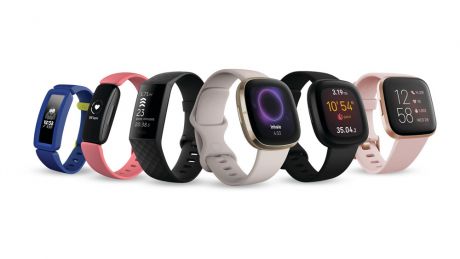
There are plenty of brands making fitness trackers and smartwatches, but Fitbit remains the most well-known with a name that’s almost synonymous with fitness trackers. We’ve tested and reviewed every Fitbit since 2014’s Charge 2, as well as models from all the other major manufacturers; while we wouldn’t go so far as to state definitively that Fitbit makes the best fitness trackers, all its wearables are accurate and easy to use, and provide illuminating information about the state of your health and fitness. Fitbit also offers those qualities in a range of devices, from budget bands to sensor-packed smartwatches, and this guide is intended to help you whittle down the options and home in on which will suit you best.
The first question to ask yourself is are you, or are you buying for, a child? If the answer to either question is yes, congratulations, the Ace 2 is the right Fitbit for you. It’s the only one designed for children, which means it gives parental oversight for who the child can befriend on the Fitbit network and also that certain features, like weight tracking, are turned off.
For adults, a quick way to narrow down which Fitbit to plump for is to consider the form factor. Do you want a smartwatch like the Sense, Ionic or Versa, or do you want a band like the Inspire or Charge?
Another way to decide on the right Fitbit is to consider which features each one has and which might be valuable to you. Here’s a run-down of the major features and which devices include them.
- NEWSFLASH: Amazon Prime Day Fitbit Deals Rated
Fitbit Features
Heart rate monitor
You can trust Coach
Why you’d want it: All Fitbits estimate your step count, but a better metric to focus on is Active Zone Minutes, which was launched earlier this year with the Charge 4 – but any Fitbit with a heart rate monitor has it. It tracks your progress towards 150 minutes of moderate aerobic activity (or 75 minutes of vigorous activity) a week, a target the NHS advocates.
The 24/7 heart rate monitor opens up access to Fitbit’s impressive sleep tracking features and also your Cardio Fitness Score, which is an estimate of your overall cardiovascular fitness and equates to a VO2 max measurement. For both, Fitbit offers context by comparing your stats against the average for your sex and age range. For the Cardio Fitness Score it also offers advice on how to improve it and estimates what effect a set of activities could have on your score, giving a useful target to aim for.
The heart rate monitor is also used for menstrual health tracking, to help people track their cycle and predict periods and windows of fertility. It requires a fair amount of manual input, however.
Which Fitbits have it? Every device bar the original Inspire has a heart rate monitor.
GPS
Why you’d want it: We recommend that runners and cyclists get some form of GPS on their device. It affords far greater accuracy when tracking distance than just using a device’s accelerometer.
Which Fitbits have it? The Sense and Versa 3 smartwatches and the Charge 4 band offer built-in GPS. The Versa 2, Inspire 2 and Inspire HR have connected GPS, which means the device will connect to your phone via Bluetooth to acquire a GPS signal. In our experience, built-in GPS is more accurate than connected GPS.
Waterproof
Why you’d want it: Beyond worrying about damaging your watch if caught in a deluge or if you forget to take it off before stepping in the shower, swimmers will want one of the best swimming watches to track their aquatic activity. This used to be a gap in Fitbit’s range, but every device in the current line-up is water resistant to 50m, although you’ll get better tracking the more you pay.
Which Fitbits have it? The Inspire family simply tracks your time in the pool and estimates calories burned. The Charge 4 will automatically count laps, although don’t expect this to be perfect, while the Sense and both Versa smartwatches can track your laps and pace in real time and display it on your device’s screen, as well as recognising which stroke you used.
Music
Why you’d want it: You like to exercise to music but don’t like leaving your phone at home or in your gym locker. If music is a key consideration, you may be better off looking at other brands, since Fitbit’s integration with streaming services in particular lags behind the competition.
Which Fitbits have it? You can store and stream music to wireless headphones on all Fitbit’s smartwatches. There’s also integration with streaming services Deezer and Spotify, as long as you have premium subscriptions with those providers. Deezer allows you to sync playlists offline, but the Spotify app, in truth, acts like a glorified remote control. In contrast, Spotify allows playlists to be stored on Garmin and Samsung devices to play offline. The cheaper Charge 4 band includes the Spotify app, but it can’t store music.
ECG
Why you’d want it: Sensors in the Fitbit’s smartwatch range make it possible to detect a condition called atrial fibrillation, which is an irregular heart rate rhythm that increases the risk of things like strokes. It’s not a replacement for a medical diagnosis, but it can be a spur to see your GP. If the device results in a condition being caught early that is obviously an invaluable benefit, but for most it’ll be a feature of limited day-to-day use.
Which Fitbits have it? The feature is offered on the Versa 2 (as well as the older smartwatches that don’t appear in the current line-up, the Ionic, Versa and Versa Lite) via a third-party app called FibriCheck. There’s a one-day trial, then access is £3.99 a month. The Sense smartwatch has a built-in Fitbit app for taking an ECG.
See related
Fitbit Devices Overview
Here’s a run-down of the current line-up.
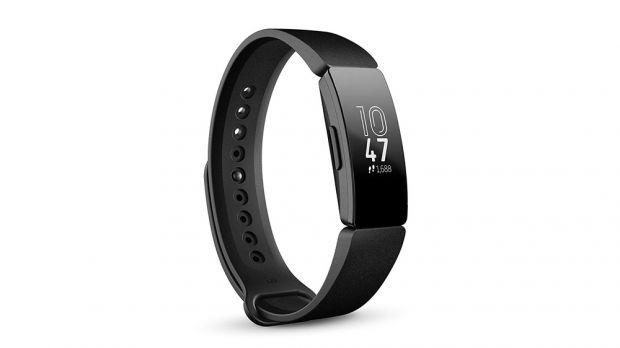
Fitbit Inspire
The cheapest tracker in Fitbit’s range, the Inspire will set you back just £69.99 and is a perfectly good everyday activity and sleep tracker. However, it lacks a heart rate monitor, and many other features and insights that you can get on the Inspire 2, which is just £20 more, so for most people it’ll be worth making the upgrade. However, keep a keen eye out during sales periods when we’d expect the price to drop to £50 or lower.
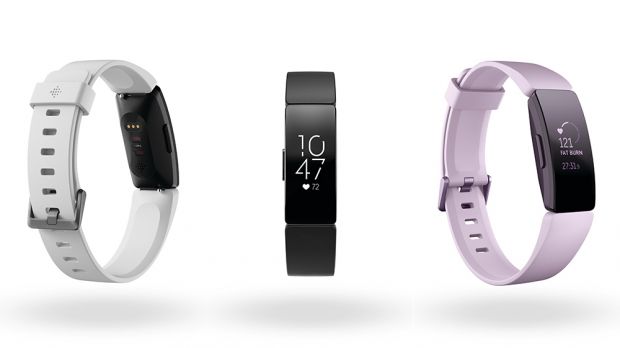
Fitbit Inspire HR
The first generation of the Inspire line included this upgrade, which – as the name suggests – added a heart rate monitor. As mentioned above, a heart rate monitor unlocks essential features. Unless you’re extremely price-sensitive or just want what is essentially a pedometer, this was our recommended entry-level device… until the next generation was announced, that is.
Read our Fitbit Inspire HR review
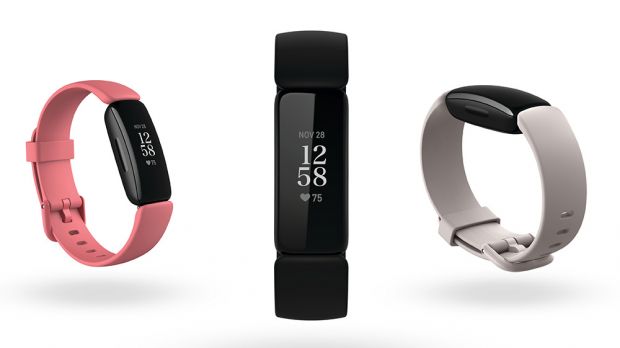
Fitbit Inspire 2
This is the best Fitbit available for under £100, offering a wealth of features that make it an excellent activity and solid sports tracker. The Inspire 2 tracks your heart rate 24/7 to assess your overall level of fitness and guide you towards 150 active minutes each week. It lasts ten days on a charge and you get one year of Fitbit Premium free with the device, which upgrades the level of detail you get in the Fitbit app as well as offering free online workouts, training plans and programmes to help you adopt healthy habits such as reducing your salt consumption.
Fitbit Charge 4
The best tracker band available from any brand, the Charge 4 has built-in GPS for accurate outdoor sports tracking, while its Run Detect feature automatically triggers the GPS to start tracking – which is extremely convenient for casual runners. As well as the usual excellent activity and sleep tracking you get from Fitbit, it also has a Spotify app which turns the device into a remote control for Spotify premium subscribers, and it lasts seven days on a charge, though be aware that using the GPS significantly shortens the battery life.
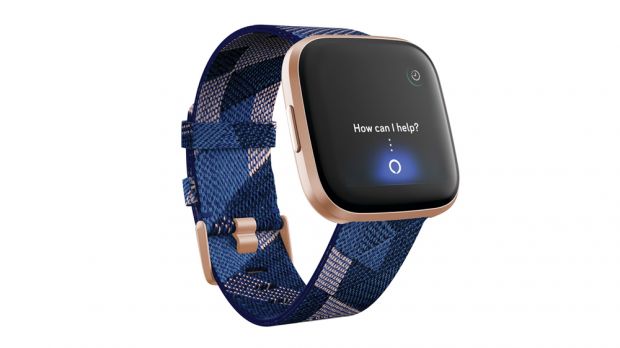
Fitbit Versa 2
If you want a smartwatch rather than a band, the Versa 2 is the cheapest option in Fitbit’s current line-up. The Versa 2 has Amazon’s Alexa voice assistant, along with storage for music, an always-on display, and on-screen guided workouts. The RRP is the same as the next-generation Versa 3, so rest assured discounts abound. Check your preferred third-party retailer like Amazon, John Lewis, Currys PC World and Argos – they’ll all price-match.
Read our Fitbit Versa 2 review
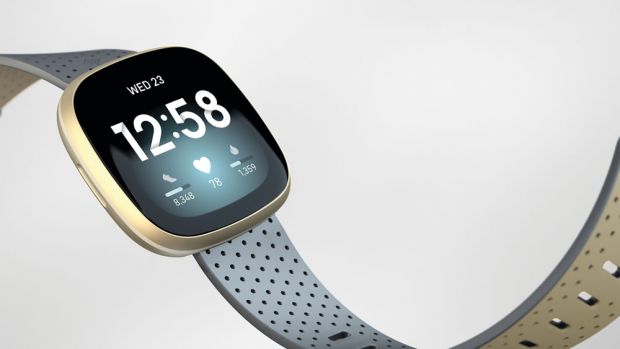
Fitbit Versa 3
The major upgrades in the Versa 3, compared with the 2, include built-in GPS, the addition of Google’s voice assistant alongside Alexa, Fitbit’s Active Zone Minutes weekly target, and an upgraded heart rate monitor.
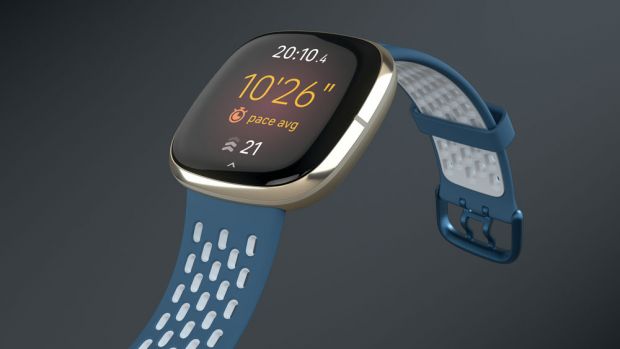
Fitbit Sense
The Sense is Fitbit’s most advanced wearable, and its key extra features compared with the Versa are sensors that measure a wealth of health stats, including skin temperature, breathing rate, heart rate variability and EDA (electrodermal activity). The watch can also take an ECG measurement from the wrist without a paid-for third-party app, and it uses the data to help estimate your stress levels and provide advice on how to manage them. Thanks to all these features it’s pitched as a health watch, but the Sense is also a great sports, activity and sleep tracker too.
Sign up for workout ideas, training advice, reviews of the latest gear and more.

Nick Harris-Fry is a journalist who has been covering health and fitness since 2015. Nick is an avid runner, covering 70-110km a week, which gives him ample opportunity to test a wide range of running shoes and running gear. He is also the chief tester for fitness trackers and running watches, treadmills and exercise bikes, and workout headphones.
